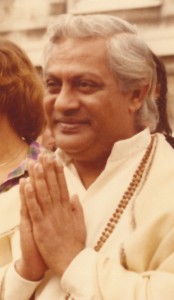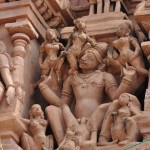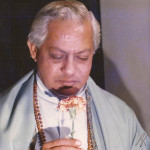During meditation, when people have experiences, what does it mean? It is simply that by diving deeper into our subtler levels of our minds, we are bringing to the fore, or to the conscious mind, experiences which already exist.
Behind the act, it is the motive or motivation that causes samskaras. One could be totally devoted to what one is doing and yet be nonattached to the action, for the action is performed for the sake of action and not for the sake of the reaction. The cause is activated, but that cause becomes a causeless cause, so that it could not have an effect.

Everyone, consciously or unconsciously desires peace. Yet the underlying factor blocking this peace, the obstacle in the way of happiness, is samskaras.
The more you try to get rid of samskaras, the more samskaras you form. Every thought man thinks, good or bad, forms an impression and the impression is a samskara.
You can have good samskaras and you can have bad samskaras. Being of a relative nature they would be within the confines of the law of opposites. We cannot escape or get rid of samskaras, but we can rise above them. Samskaras are like a burden that a man carries on his back. By lessening the burden, he is not destroying the contents of the burden, but he is leaving it on the wayside.
In order to rise above the law of opposites, there is a certain process: the process of refinement. Samskaras cannot be destroyed, but they can be brought to a far subtler, purer level, and this comes through action. All action performed is first governed by thought. If thoughts can be formulated in a manner of goodness then the actions become good also.







Speak Your Mind